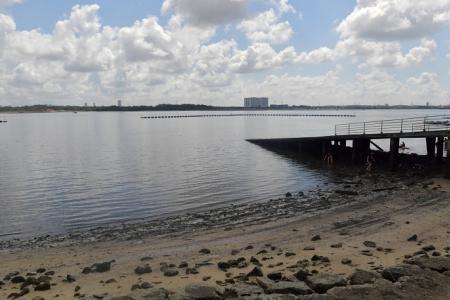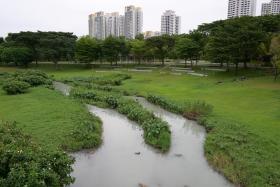Sembawang Park Beach still unsafe for swimming
Sunseekers can happily frolic in the waters at six out of seven beaches in Singapore that have been given a “good” grading, but the waters off Sembawang Park Beach are not safe for swimming.
Pasir Ris Beach, which got a fair grading in Feb 2024, is now suitable for swimming and activities like wakeboarding, windsurfing and water immersion training, said the National Environment Agency (NEA) in a statement on Jan 24.
The remaining five beaches with a good grading are Changi, East Coast Park, Punggol, Seletar Island and Sentosa.
The latest assessment of Sembawang Park Beach stands at fair because the water has elevated levels of Enterococcus bacteria, which increases the risk of gastrointestinal infection.
Beachgoers are advised against swimming or engaging in activities where the whole body or face comes into frequent contact with the water at Sembawang Park Beach, said NEA. But sailing, kayaking and canoeing activities can continue as they normally would.
The beaches are graded based on World Health Organisation recreational water quality guidelines, which take into account incidences of elevated Enterococcus bacteria count in the water samples.
In 2024, elevated levels of the bacteria were detected in the waters off Pasir Ris Beach and Sembawang Park Beach.
Findings suggest that elevated bacteria levels at the two beaches could have originated from places like bin centres, eateries or construction sites.
NEA said: “Improper hygiene practices, such as pouring of water containing waste materials into the drains, could have impacted the water quality in our waterways.”
Beachgoers can refer to the NEA weekly Beach Short-term Water Quality Information on its website or the myENV app before taking a dip.
Get The New Paper on your phone with the free TNP app. Download from the Apple App Store or Google Play Store now


